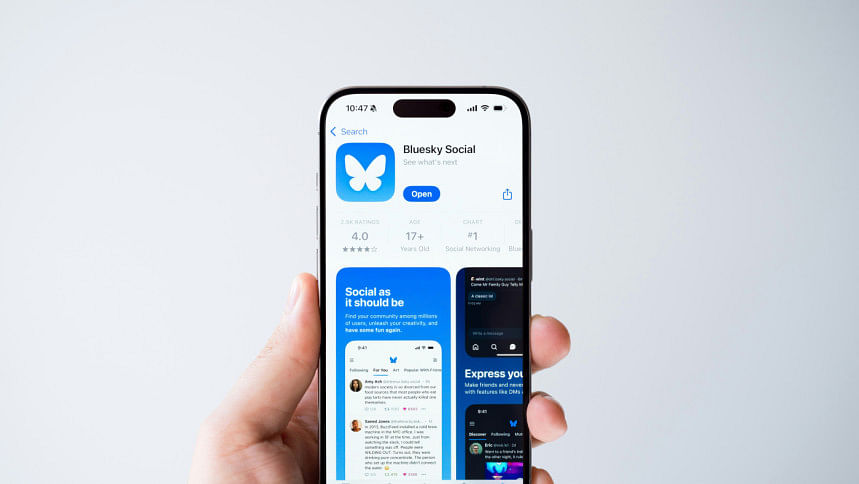Can Bluesky be the new (old) Twitter?

In recent weeks, the social media landscape has seen a surge of interest in Bluesky, a new platform that is being hailed as an alternative to Elon Musk's X (formerly known as Twitter). With its familiar interface and a rapid influx of users, Bluesky is quickly becoming a noteworthy competitor in the microblogging space.
What is Bluesky?
Bluesky, launched as a project by former Twitter CEO Jack Dorsey, aims to reshape the way social media operates. The platform looks remarkably similar to its predecessor, with familiar features like posts, comments, reposts, and notifications, all presented on a clean interface that feels reminiscent of the original Twitter experience.
However, Bluesky sets itself apart with its decentralised approach. Unlike traditional social media platforms where user data is stored on company-owned servers, Bluesky allows users the option to host their own data on independent servers. While most users still opt for the default ".bsky.social" domain, the platform's flexibility appeals to those seeking greater control over their online presence.
A rapid rise in popularity
Although Bluesky was initially launched in 2019, it remained an invitation-only platform until February of this year. This gradual rollout allowed developers to fine-tune the system, ensuring stability before opening it to a wider audience. The strategy appears to have paid off, with the platform currently adding around one million new users per day. As of now, Bluesky has reached 16.7 million users, though this number continues to climb rapidly.
The recent surge in user sign-ups coincided with the aftermath of the November US elections, where political tensions drove many to seek alternatives to X. Elon Musk's vocal support for Donald Trump's campaign has been a significant factor in this migration, with some users leaving X due to concerns over its increasingly politicised environment. Even major outlets like The Guardian have distanced themselves from X, labelling it as a "toxic media platform."
Bluesky's rise is not only driven by political reasons but also by endorsements from celebrities. High-profile figures such as Lizzo, Greg Davies, Ben Stiller, Jamie Lee Curtis, and Patton Oswalt have joined the platform, bringing attention from their followers and boosting its popularity. In the UK, the app recently became the most downloaded free app on the Apple App Store.
Who owns Bluesky now?
Although Jack Dorsey founded Bluesky, he stepped down from its board in May 2024 and has since deleted his account entirely. The platform is currently led by Jay Graber, who operates it as a US public benefit corporation. Graber's vision for Bluesky is to continue its decentralised model, ensuring no single entity has full control over the platform.
How does Bluesky plan to sustain itself?
With its user base expanding rapidly, Bluesky faces the critical challenge of finding a sustainable revenue model. Unlike X, which heavily relies on advertising, Bluesky aims to avoid this route. Instead, it is exploring paid services, such as offering users custom domains for their usernames, which could also serve as a form of verification.
While paid services could provide a steady stream of income, Bluesky may eventually need to consider other options, such as subscription features, to maintain financial stability. This would not be unprecedented in the tech world, as even Twitter struggled to turn a profit before being acquired by Musk in 2022.
The road ahead for Bluesky
Despite its rapid growth, Bluesky still faces a long journey before it can truly compete with X, which is reported to have hundreds of millions of users. Elon Musk has previously claimed that X sees around 250 million daily users, a figure Bluesky is far from reaching.
However, with a strong focus on decentralisation, user privacy, and a growing community, Bluesky presents a fresh alternative for those disillusioned with traditional social media platforms. As the platform continues to evolve and expand, it remains to be seen whether it can sustain its momentum and carve out a significant niche in the competitive world of social media.

 For all latest news, follow The Daily Star's Google News channel.
For all latest news, follow The Daily Star's Google News channel. 








Comments